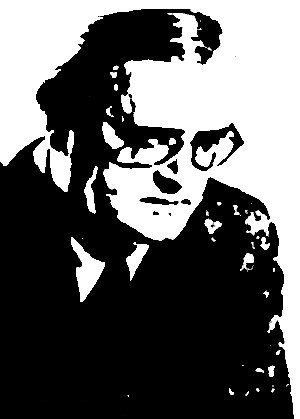Tribal World of Verrier Elwin
by K. L. Kamat
First Online: August 08, 2000
Page Last Updated: December 07, 2024
While he was a student at Oxford, Verrier Elwin (1902-1964) took keen interest in the Indian culture. He was a devout Christian and underwent formal training as a missionary. He came to India 1927 to spread the gospel and joined the Christian Service Society in Pune. During his work, he was greatly influenced by Hindu philosophy and by Ravindranath Tagore's writings. At that time, the freedom movement was intense in India under the leadership of Mahatma Gandhi. Elwin exchanged with views and ideas with Congressmen such as Nehru and Patel which irked the British Government. He took to travel with Vallabhabhai Patel and Jamanlal Bajaj across India and deeply felt the suffering of the people. Then he met with a very capable volunteer by the name of Shamrao Hivale and together they studied the Gond tribe of Central India (today's Madhya Pradesh). He took interest in the lives and started reforming them.

Verrier Elwin
(1902-1964)
However, the church objected to Elwin's social service agenda and he resigned to his missionary post in 1931. During the subsequent year, he started an ashram in Karanjiya village. He started living like a tribal to understand them better, but tried to eliminate the myth, superstition, and ignorance from the tribals. He taught them agriculture and opened a pharmacy. Villagers from far away places and forests came to the ashram to avail its facilities.
The Converter Becomes Converted
The clergy and British government could not tolerate Elwin's "anti-establishment" activities and harassed him in many ways, which only made Elwin stronger and closer to the native people. He converted from Christianity to Hinduism! He married a Gond girl "Kosi" and had a son by the name of Jawahar Singh. In the tribal tradition, he also took another woman "Leela", the daughter of Pradhan (village head) of Pathangad. He strongly felt that the family and social habits of the tribals were far superior to those of the "civilized" societies, as there was no sexual inequalities and the responsibilities were distributed naturally. When he felt that the tribals of Bastar needed his services, he built another Ashram in Chitrakut.
The Tribal World of Verrier Elwin
Due to his close association with the tribals, he became an authority on their lifestyle and culture. He dedicated his life and money to their betterment. It is only because of him that the adivasis who were lost in the deepest forests became the citizens of free India.
The government of India, after freedom (in 1947) appointed Verrier Elwin as a consultant to reform and improve living conditions for the large number of tribals in India. He served as the chief of the Anthropological Survey of India and documented many many native tribes and lifestyles in central and far east India.
![]()
See Also:
- Verrier Elwin on reforming the tribals of India Coming Soon
- The Tribals of India section at Kamat's Potpourri
- Stories of Bastar Travel -- Kamat travels to live among the tribals of Madhya Pradesh
- Tribal Picture Gallery-- Picture stubs of tribals of India
- Books by Verrier Elwin at Amazon

| Verrier Elwin came to India to banish the darkness of the tribals. He banished the darkness about the tribals as well. |